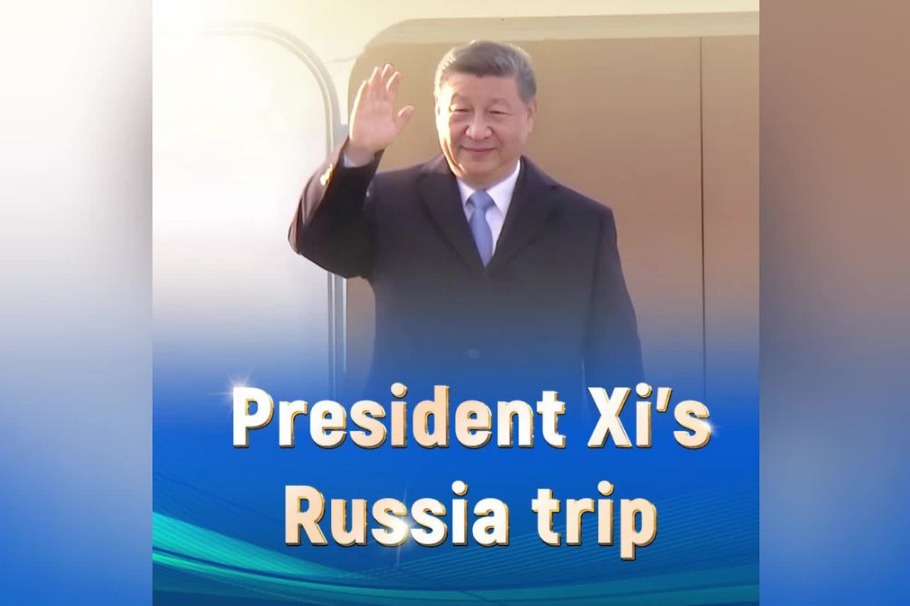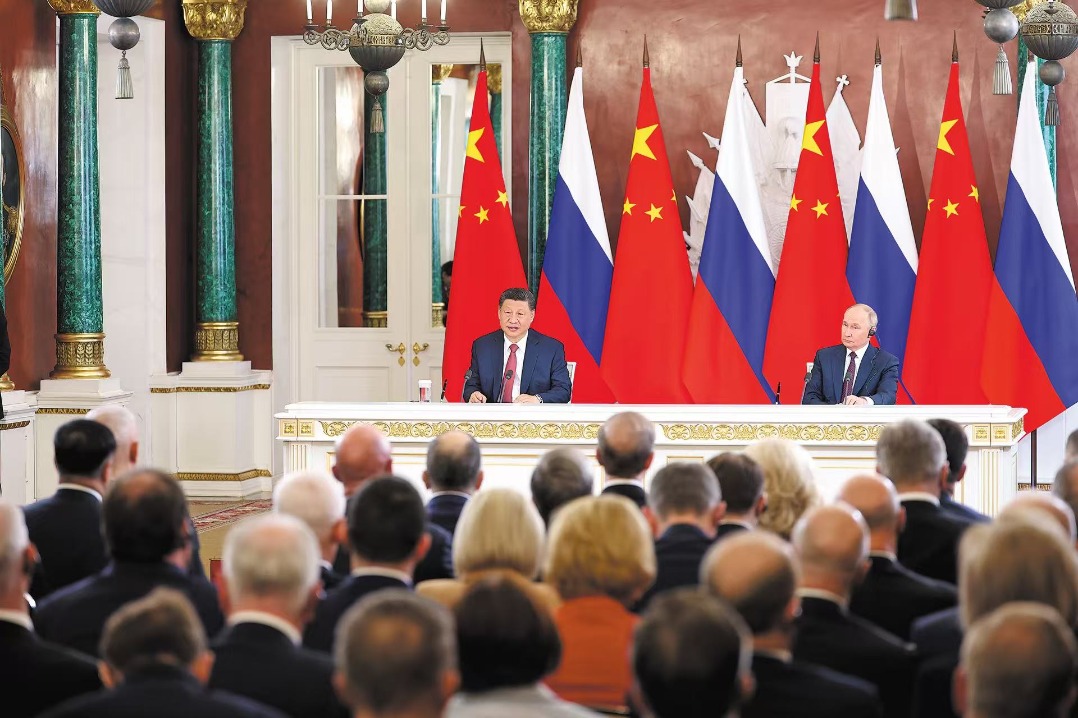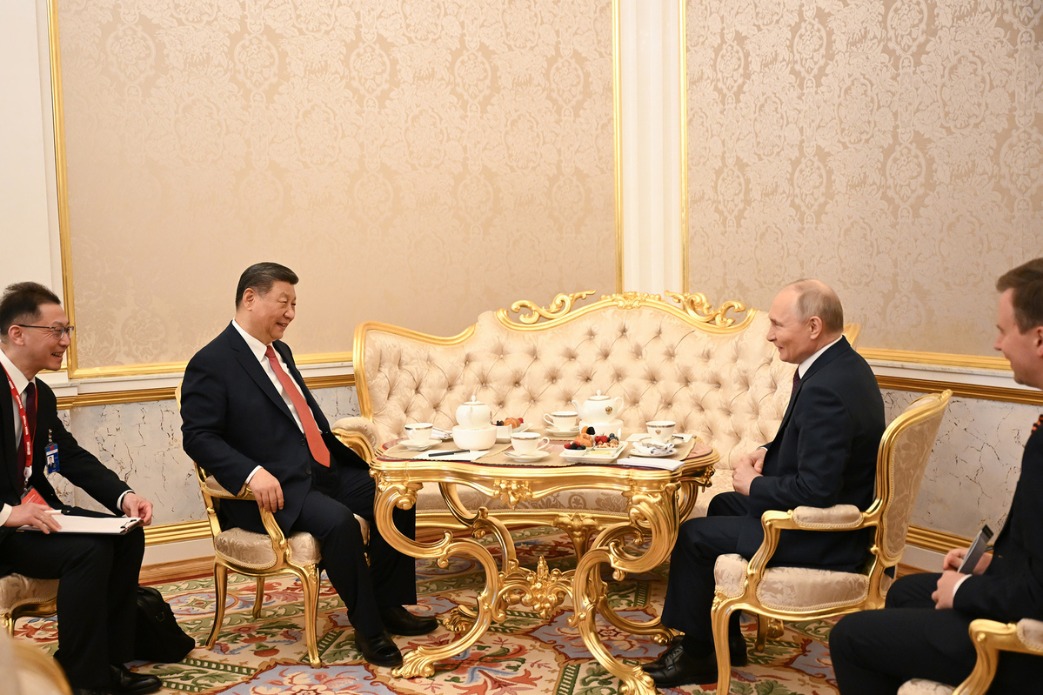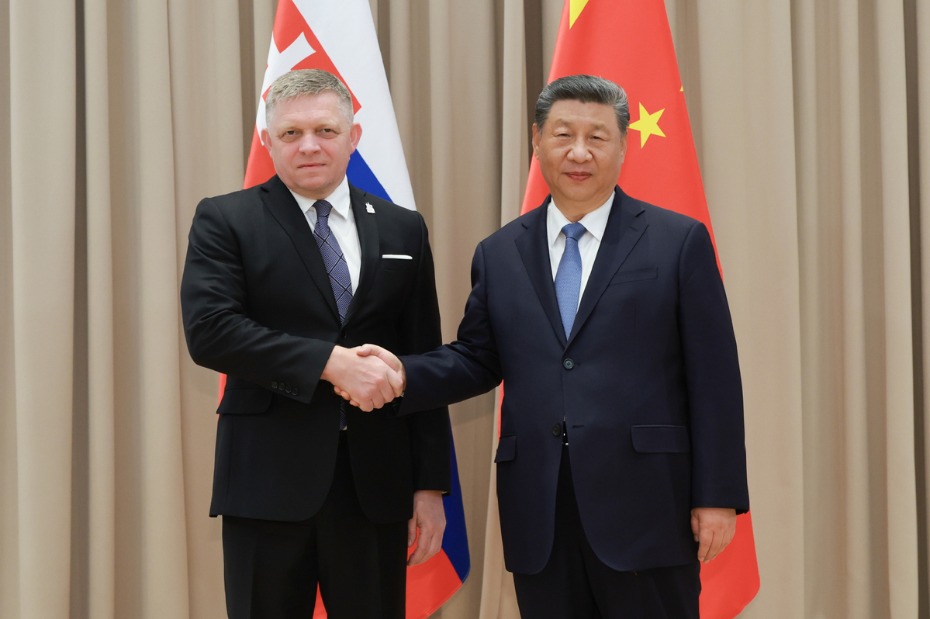Demolition drive


The US is attempting to maintain its hegemony by fragmenting the current global geopolitical and geoeconomic status quo
Editor's note: The world has undergone many changes and shocks in recent years. Enhanced dialogue between scholars from China and overseas is needed to build mutual understanding on many problems the world faces. For this purpose, the China Watch Institute of China Daily and the National Institute for Global Strategy, Chinese Academy of Social Sciences, jointly present this special column: The Global Strategic Dialogue, in which experts from China and abroad will offer insightful views, analysis and fresh perspectives on long-term strategic issues of global importance.
The United States' policies have created multiple upheavals in international affairs and have sparked numerous reactions around the world. However, it would likely be a grave mistake to consider these actions as products of some personal idiosyncrasies, let alone impulsive or irrational moves without long-term geopolitical aims. Even theories suggesting that these actions target China or seek to revive US industry through a mercantilist economic model may be limiting. It should be considered that these actions are part of a broader geopolitical strategy based on the theories of Halford Mackinder, Nicholas J. Spykman and Alfred Thayer Mahan. The primary pillar of US geopolitical strategy, and before that of the United Kingdom, was to avoid the emergence of a single, dominant power in Eurasia. However, today this perceived threat of a pan-Eurasian consolidation is beginning to emerge, and the US is primarily responsible for this development.
After the end of the Cold War, the Western world was dominated by the perception of the end of history and the fantasy of absolute US dominance in the world. The "unipolar moment" was considered, consciously or unconsciously, to be a permanent, timeless state. Simultaneously, the US aggressively and arrogantly promoted its political, economic and social worldviews, theories and perceptions to the rest of the world. As a result, in response to this unnatural, fantastical aggrandizement of the West and the paranoid cessation of historical time, a gradual consolidation of Eurasian powers emerged, forming a loose yet real and functional geopolitical entity of unprecedented scale, which could be deemed the first hyperpower in human history. The Ukraine crisis has worsened the situation, as the US and Western Europe became entrapped in an intra-European conflict. This would not have been problematic until a few decades ago when European and Eurogenic powers dominated the global stage. However, today the center of gravity of the planet has shifted eastward, and if the West becomes isolated in an intra-European war, the East will be left free to advance its own plans. This is further exacerbated by the fact that the Ukraine crisis, materially and imaginatively, severed the already partially severed Russia from the rest of Europe, "Asianizing" it, providing a vast land "sea" with nearly inexhaustible resources that could benefit a range of Eurasian countries.
Thus, the possibility of a new bipolar world has emerged, in which, unlike during the Cold War, the Euro-Atlantic West will be in a significantly worse position compared to a unified Eurasia.
Therefore, the US is attempting to disrupt the Eurasian unity, which it has created itself. Specifically, the strategy of the US administration seems to be to recreate a system in which the US will continue to be the dominant power. This is because neither China nor Russia, nor any other country can compete on equal terms with the US alone. Much less so if competitive relations between them arise, due to historical tensions and competitive geopolitical interests. However, this is not easy to achieve. The dismantling of Eurasian consolidation cannot happen easily or quickly. However, recent developments, such as the first European Union-Central Asia summit, highlight a growing trend of cooperation within Eurasia.
The US administration and the power system that supports it are attempting a kind of shock therapy, which is the deconstruction of the unity of the Euro-Atlantic world. The peculiar rhetoric about Greenland and the economic war launched against the EU serve this goal, among other purposes.
By causing an unprecedented rift in the unity of one candidate pole of the emerging bipolar global system, US policy seeks to activate centrifugal tendencies within the other pole, the Eurasian one, and to increase the complexity of the global system in order to drive it further toward everlasting US leadership.
In the same vein lies the deconstruction of the unified globalized economic system. For a truly multiparty world to emerge, a multiparty international economic system is also needed, especially in today's era where the technologies of the Fourth Industrial Revolution will inevitably change the global economy.
In conclusion, what we are experiencing today is likely an attempt by the US to break the world into pieces, to fragment in some way the current global geopolitical and geoeconomic status quo, to increase complexity and ambiguity in the international system, and thus to create conditions for the resurgence of competition among Eurasian states, so as to allow the US to leverage the advantages provided by its secure geographical position and dominance of the oceans, transforming them so it can be the maestro of the global orchestra.
The author is professor of geopolitics and modern weapons technologies and head of the Department of Theory and Analysis of War at the Hellenic Military Academy. The author contributed this article to China Watch, a think tank powered by China Daily. The views do not necessarily reflect those of China Daily.
Contact the editor at editor@chinawatch.cn.
































